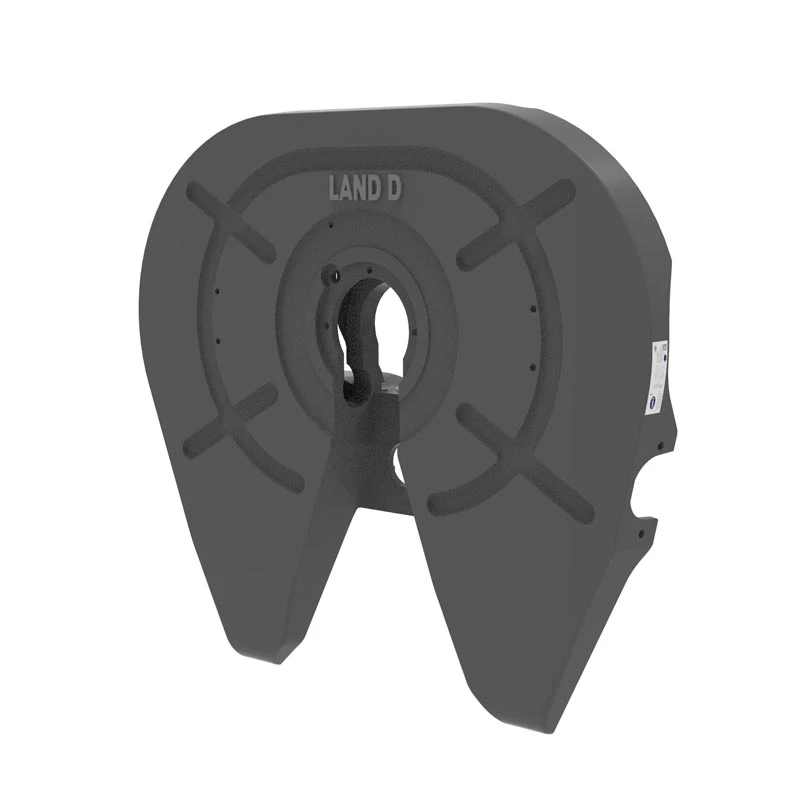nov . 30, 2024 19:50 Back to list
Top Reasons for Fifth Wheel Failures and How to Prevent Them
Understanding Best Practices to Prevent Fifth Wheel Failures
The fifth wheel is a crucial component in the trucking industry, acting as the coupling mechanism between the truck's cab and the trailer. Its primary role is to secure the trailer for transport, ensuring stability and safety on the road. However, failures can occur, often leading to serious accidents, costly downtime, and adverse impacts on logistics. This article delves into common causes of fifth wheel failures and offers best practices to mitigate these risks.
Common Causes of Fifth Wheel Failures
1. Improper Maintenance One of the leading causes of fifth wheel failures is neglecting routine maintenance. The fifth wheel, like any mechanical part, requires regular inspection and servicing to ensure its proper functioning. Failing to grease the fifth wheel, for instance, can lead to excessive wear and tear, ultimately compromising its integrity.
2. Poor Installation Installing a fifth wheel incorrectly can result in poor alignment between the tractor and trailer. This misalignment can cause undue stress on the mechanism, making it prone to failure. It is crucial to ensure that the fifth wheel is installed according to manufacturer specifications and guidelines.
3. Wear and Tear Over time, the fifth wheel can suffer from general wear and tear due to constant use. Factors like heavy loads, rough roads, and extreme weather conditions can accelerate this process. Operators must regularly inspect the fifth wheel for signs of wear, such as cracks, dents, or excessive play.
4. Overloading Exceeding the recommended weight limits for the fifth wheel can lead to severe consequences. Overloading increases stress and strain on not just the fifth wheel but also the entire truck-trailer assembly, leading to premature failure.
5. Environmental Factors Exposure to harsh environmental conditions can also contribute to the deterioration of the fifth wheel. For instance, excessive moisture can lead to rust and corrosion, while prolonged exposure to dirt and grime can hinder moving parts.
best fifth wheel failure

Best Practices to Prevent Fifth Wheel Failures
1. Regular Inspections Implement a routine inspection plan for the fifth wheel. Before every trip, drivers should check the fifth wheel for any visible damage, ensure it is properly lubricated, and confirm that the locking mechanism is functioning effectively.
2. Adhere to Maintenance Schedules Following the manufacturer’s maintenance schedule is essential for prolonging the lifespan of the fifth wheel. This includes regular greasing, cleaning, and replacing worn parts as needed.
3. Proper Training for Drivers Ensuring that drivers are adequately trained in the proper use of the fifth wheel is vital. This training should cover how to correctly connect and disconnect the trailer, as well as how to perform basic inspections.
4. Load Management Operators should be mindful of the weight limits specified for both the fifth wheel and the trailer. Distributing the load evenly and ensuring that it does not exceed the legal limits can help prevent undue stress on the coupling mechanism.
5. Environmental Protections Taking measures to protect the fifth wheel from environmental damage can also be beneficial. This may include using covers when not in use and cleaning the fifth wheel regularly to prevent the build-up of dirt, salt, and moisture.
Conclusion
Fifth wheel failures can lead to significant safety hazards and financial losses, making it essential for trucking companies to prioritize the maintenance and inspection of this critical component. By understanding the common causes of failures and implementing best practices, operators can enhance the reliability of their equipment and ensure safer journeys on the road. As the trucking industry continues to evolve, staying informed about the latest maintenance techniques and technologies will be key to preventing failures and promoting operational efficiency.
-
Imperial Truck Repair Hayward CA - High Quality, Affordable & Reliable Services
NewsJun.10,2025
-
High Quality Fontaine International do Brasil – Best Discount Offers Online
NewsJun.10,2025
-
Premium Fontaine Valves - High Quality & Discount Offers Durable
NewsJun.10,2025
-
Premium Fifth Wheel King Pins Top Durability & Savings
NewsJun.10,2025
-
Best Semi Trailer Kingpins for Sale Premium & Discounted
NewsJun.10,2025
-
Premium Holland Fifth Wheel Slider Parts Durable & Discount Deals
NewsJun.09,2025
